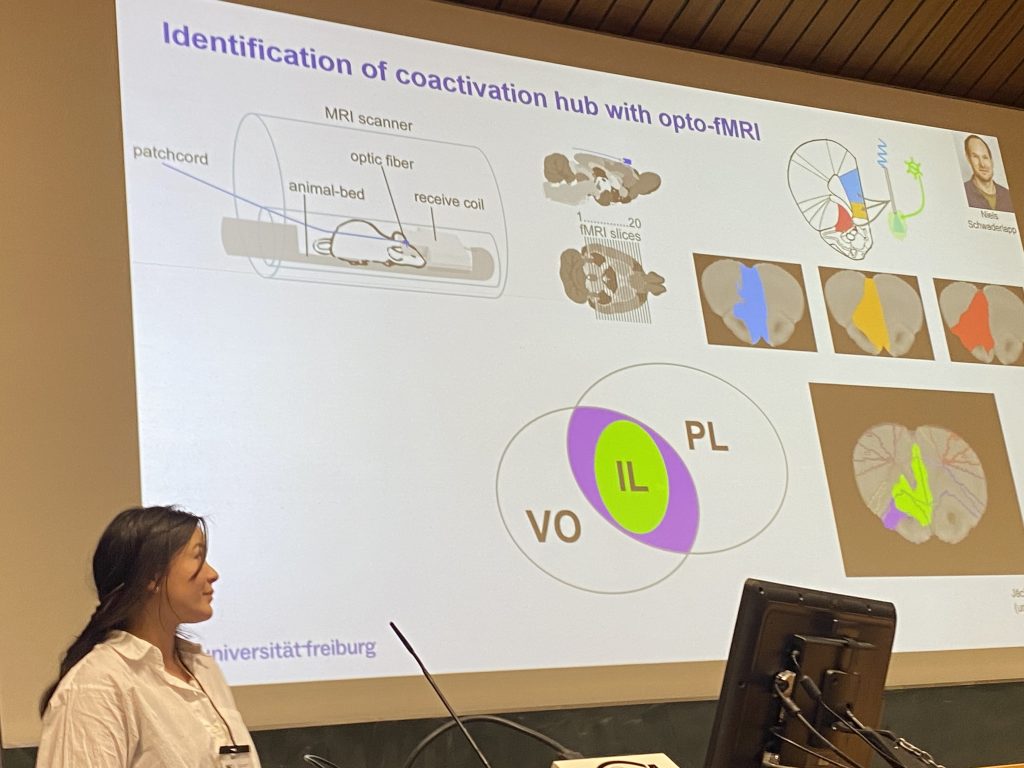Symposium 3 during the 16th Göttingen Meeting of the German Neuroscience Society 2025:
“Prefrontal mechanisms of adaptive cognitive behaviors in health and disease”
Our environment is constantly evolving, making the ability to adapt to changing, challenging conditions essential. For informed decision-making, an organism must store and update information about the world and its interactions with it. The prefrontal cortex (PFC) plays a key role in these higher-order cognitive functions, including attention, working memory, strategy shifting, and inhibitory control. Its impairment is linked to various mental disorders, such as loss of impulse control and schizophrenia, underscoring its clinical significance. The symposium thus transitioned from exploring functions to dysfunctions in the adult and developing brain.
Claudia Böhm kicked off the symposium with the organization of task-relevant information in PFC. In a multi-phase spatial working memory task in rats, PFC cells structured task elements (e.g., locations, actions, phases) based on the task’s logic.
Young Investigator Speaker Zoe Jäckel further illuminated the role of rat PFC subareas in action control by presenting data obtained with a battery of techniques including optogenetics, electrophysiology, behavioral analysis, and fMRI.
Turning to PFC-related pathologies, M. Victoria Puig showed that dysfunctional prefrontal-hippocampal communication plays critical roles in cognitive impairment observed in schizophrenia, and the contribution of serotonin receptors to the modulation of prefrontal-hippocampal circuits.
Bringing developmental aspects into play, Paul G. Anastasiades showed how disruptions in postnatal synaptic maturation of the prefrontal cortex may contribute to a number of neuropsychiatric disorders, such as schizophrenia and autism.
Peter J. Uhlhaas rounded up the symposium by discussing cognitive deficits in schizophrenia that are linked to PFC dysfunction highlighting a disrupted excitation/inhibition balance, involving PV+ interneurons and AMPA/NMDA receptor activity. He presented oscillatory impairments in schizophrenia. These oscillations, maturing during adolescence, may underlie PFC-circuit evelopment and contribute to psychosis onset.

